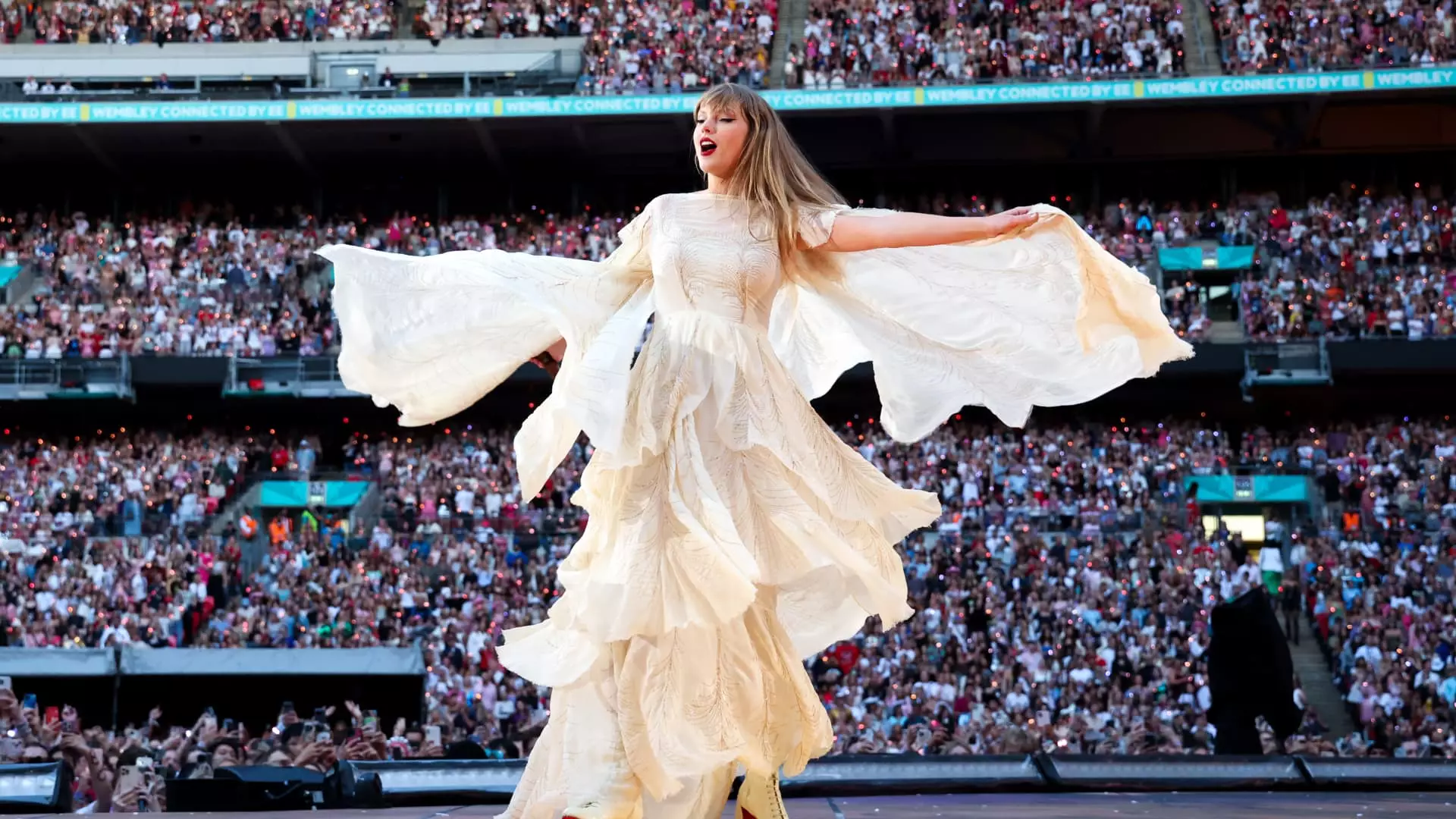In the aftermath of the Covid-19 pandemic, many Americans have shifted their spending habits towards experiences and entertainment, prioritizing the “here and now” over long-term financial planning. According to Matt Schulz, chief credit analyst at LendingTree, the pandemic has fundamentally changed the way people view their finances, leading to a greater emphasis on immediate gratification. This shift in mindset has contributed to a phenomenon known as “funflation,” where the prices of live events and entertainment have surged as consumers seek to make up for lost time.
Recent data from the Bureau of Labor Statistics’ consumer price index reveals a substantial increase in the cost of attending live events. Prices for sporting events have seen a 21.7% jump in May 2024 compared to the previous year, making it the category with the highest annualized inflation rate. Similarly, admission prices for movies, theaters, and concerts rose by 3% annually. Despite the overall consumer price index increasing by 3.3% in May from the previous year, a significant portion of adults are still willing to take on more debt to indulge in travel, dining out, and live entertainment.
A report by Bankrate indicates that 38% of adults are planning to accumulate more debt to finance their leisure activities in the coming months. Among them, 27% intend to go into debt for travel, 14% for dining out, and 13% for attending live events such as concerts and sporting matches. This willingness to incur debt reflects a growing demand for out-of-home entertainment, fueled by a “you only live once” mentality that has been amplified by the pandemic. The favorable economic conditions, including GDP growth and low unemployment rates, have also contributed to the willingness of consumers to spend beyond their means.
Bankrate’s research shows that younger adults, particularly Generation Z and millennials, are more inclined to splurge on discretionary purchases like travel and live entertainment. Despite facing challenges related to the increased cost of living, young adults are adopting a more relaxed approach to financial planning, prioritizing experiences over long-term financial security. This trend highlights a shift towards instant gratification and the belief that the enjoyment derived from these experiences outweighs the potential consequences of accumulating debt.
The phenomenon of funflation reflects a broader shift in consumer behavior towards prioritizing experiences and entertainment over long-term financial stability. The willingness of Americans to incur debt to indulge in leisure activities underscores the desire to make up for lost time and embrace a more spontaneous approach to spending. While rising costs present challenges, particularly for young adults starting out, the demand for out-of-home entertainment remains robust. As Americans navigate the post-pandemic landscape, it is essential to strike a balance between enjoying life’s experiences and maintaining financial well-being in the long run.

